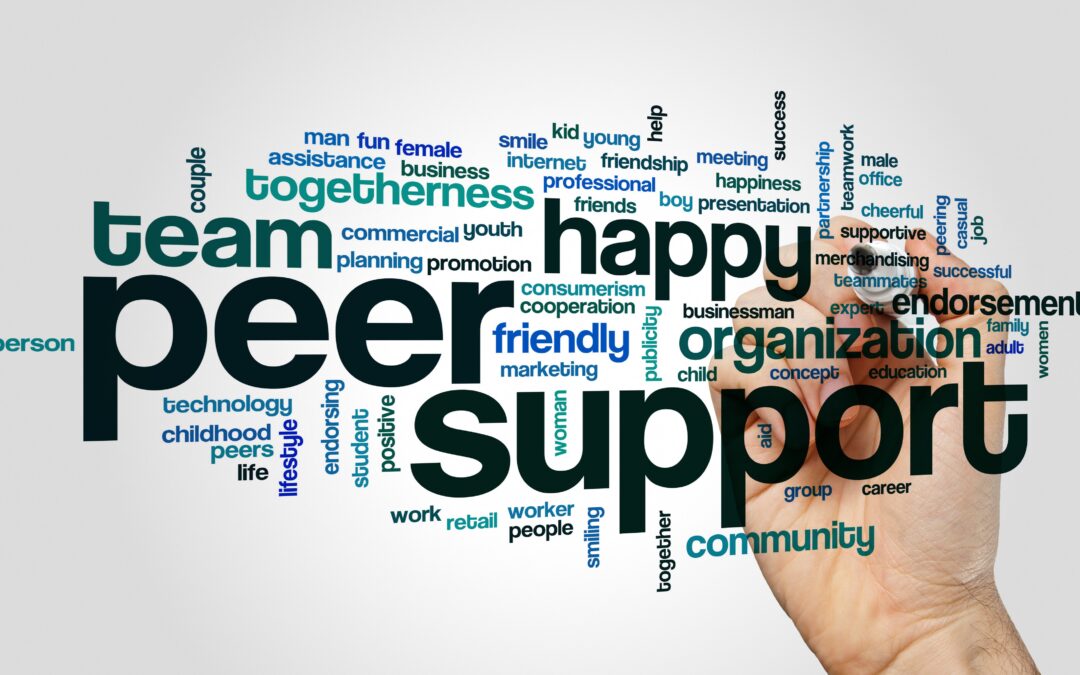Recovering from addiction is a profound journey marked by challenges, triumphs, and personal growth. Once individuals have successfully navigated their own path to sobriety, many find fulfillment in helping others overcome similar struggles. Peer support plays a vital role in the recovery process, offering empathy, understanding, and guidance to those in need. In this blog post, we will explore the importance of supporting others after overcoming addiction, including the benefits of peer support training certification and how it empowers individuals to make a meaningful difference in the lives of others.
The Power of Peer Support:
Peer support is a cornerstone of the recovery process, offering individuals the opportunity to connect with others who have shared similar experiences and understand the challenges they face.
- Shared Experience:
- Peers who have overcome addiction can offer empathy, validation, and encouragement to those still struggling, knowing firsthand the journey they are undertaking.
- The shared experience creates a sense of camaraderie and understanding that fosters trust and connection.
- Non-judgmental Support:
- Peer support provides a safe space for individuals to share their struggles, fears, and triumphs without fear of judgment or stigma.
- Peers offer unconditional acceptance and support, helping individuals feel heard, valued, and understood.
- Role Modeling:
- Peers who have successfully overcome addiction serve as role models and sources of inspiration for others, demonstrating that recovery is possible and achievable.
Supporting Others After Recovery:
Once individuals have achieved sobriety, many feel a deep desire to give back and support others on their journey to recovery. There are various ways individuals can support others after overcoming addiction:
- Peer Support Groups:
- Joining or facilitating peer support groups provides individuals with the opportunity to connect with others in recovery, share their experiences, and offer support and encouragement.
- Peer support groups may be community-based, faith-based, or specific to certain populations or demographics.
- Volunteer Work:
- Volunteering at addiction treatment centers, recovery programs, or community organizations allows individuals to use their experience and expertise to support others in need.
- Volunteer roles may include leading support groups, mentoring individuals in recovery, or providing assistance with outreach and education efforts.
- Peer Support Training Certification:
- Obtaining peer support training certification equips individuals with the knowledge, skills, and credentials needed to effectively support others in their recovery journey.
- Peer support training programs cover topics such as active listening, communication skills, crisis intervention, and ethical guidelines for peer support professionals.
Benefits of Peer Support Training Certification:
Peer support training certification offers numerous benefits for individuals who have recovered from addiction and wish to support others in their journey:
- Professional Development:
- Peer support training certification provides individuals with valuable skills and knowledge that enhance their ability to support others in recovery.
- Certification demonstrates a commitment to professionalism and ethical practice in peer support work.
- Increased Effectiveness:
- Peer support training equips individuals with evidence-based techniques and strategies for effectively supporting others in their recovery journey.
- Certified peer support professionals are better equipped to establish rapport, provide emotional support, and empower individuals to achieve their recovery goals.
- Career Opportunities:
- Peer support training certification opens up opportunities for individuals to pursue careers in the field of addiction recovery and mental health support.
- Certified peer support professionals may work in various settings, including addiction treatment centers, community organizations, healthcare facilities, and government agencies.
Conclusion:
Supporting others after overcoming addiction is a meaningful and rewarding endeavor that empowers individuals to make a positive impact in the lives of others. Peer support plays a crucial role in the recovery process, offering empathy, understanding, and guidance to those in need. Obtaining peer support training certification enhances individuals’ ability to effectively support others in their recovery journey, providing valuable skills, knowledge, and credentials for professional practice. By leveraging their own experiences and expertise, individuals who have recovered from addiction can help others find hope, healing, and empowerment on their path to recovery.

